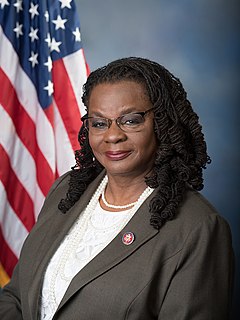A Quote by Ro Khanna
Of course it would be great to have more scientists in Congress. But what I'd love is to have another Lyndon Johnson in Congress who makes climate change his first priority. We need people who know how to work the system and the institution.
Related Quotes
Our president delivered his State of the Union message to Congress. That is one of the things his contract calls for -- to tell congress the condition of the country. This message, as I say, is to Congress. The rest of the people know the condition of the country, for they live in it, but Congress has no idea what is going on in America, so the president has to tell 'em.
Despite the international scientific community's consensus on climate change, a small number of critics continue to deny that climate change exists or that humans are causing it. Widely known as climate change "skeptics" or "deniers," these individuals are generally not climate scientists and do not debate the science with the climate scientists.
At first when I heard about climate change, I was a climate denier. I didn't think it was happening. Because if there really was an existential crisis like that, that would threaten our civilisation, we wouldn't be focusing on anything else. That would be our first priority. So I didn't understand how that added up.
We already know that there are those close to James Comey who have a very different take, if there are tapes, of course, that would be the best evidence of what took place. If they exist, Congress needs to get them. If they're not provided willingly, Congress should subpoena them. And if they're not in existence, if this was yet another fabrication by the president, he needs to come clean about it.
You need to fight cases in the courts, but you certainly cannot rely on the courts, you need to testify in Congress and lobby your Congress person, but you certainly cannot rely on Congress. You need to speak out in the media, but you cannot totally trust the media either. You need to work within the academy because that's an influential opinion body. I think that one of the lessons that people have learned in the civil rights community is that it is generally not enough to focus on litigation in the courts.
The case of Johnson v. M'Intosh is exactly why Congress can pass legislation as it did with the Rio Tinto land mine deal because Congress took the land from the tribes, ignores their sacred connections to it, their cultural connections and does whatever it wants with it. Congress terminated tribal status for more than 100 tribes. Basically said, you're not a tribe anymore and we're not going to pay attention to the treaties. The Supreme Court has held that when Congress breaches a treaty with an Indian tribe it's not judicially reviewable. It's called a political question.


































